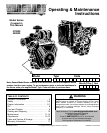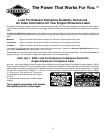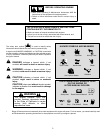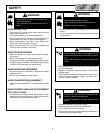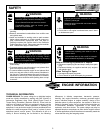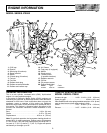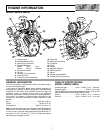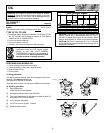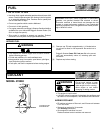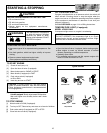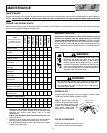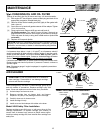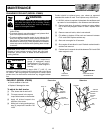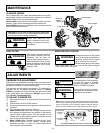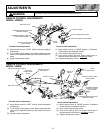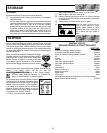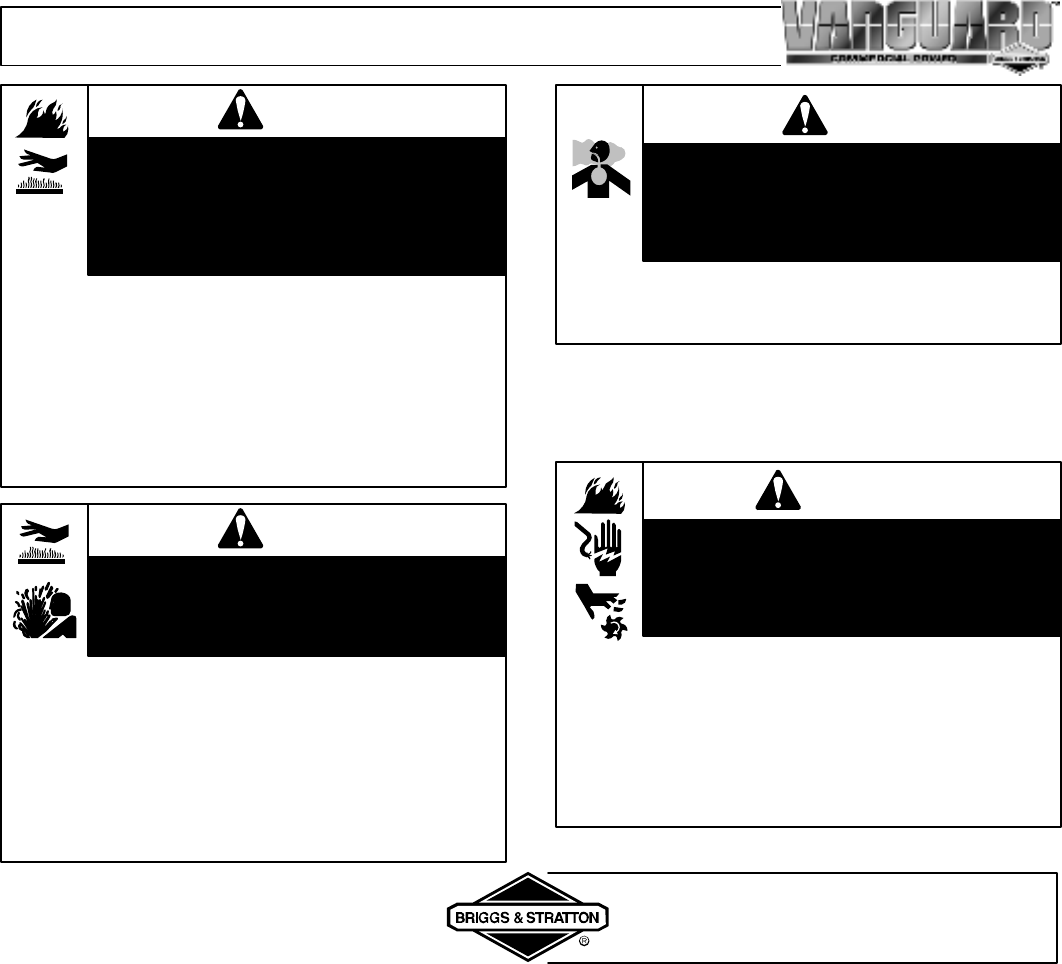
5
SAFETY
WARNING
Running engines produce heat. Engine parts,
especially muffler, become extremely hot.
Severe thermal burns can occur on contact.
Combustible debris, such as leaves, grass,
brush, etc. can catch fire.
• Allow muffler, engine cylinder and fins to cool before
touching.
• Remove accumulated combustibles from muffler area
and cylinder area.
• Install and maintain in working order a spark arrester
before using equipment on forest-covered, grass-cov-
ered, brush-covered unimproved land. The state of
California requires this (Section 4442 of the California
Public Resources Code). Other states may have similar
laws. Federal laws apply on federal land.
WARNING
Never remove radiator cap or radiator reservoir
cap while the engine is hot or running. Severe
thermal burns or injury can occur by escaping
steam or hot engine coolant.
• Stop engine and allow to cool before removing radiator or
reservoir cap.
• To remove reservoir cap after engine is cool, place a thick
cloth over cap and remove it slowly.
• To remove radiator cap after engine is cool, place a thick
cloth over cap and rotate it slowly counter-clockwise to
the first stop. Pressurized steam may emit from the cap,
stand back to avoid injury. Once all pressure is released,
rotate cap counter-clockwise while pushing down on cap
to remove.
Engines give off carbon monoxide, an odorless,
colorless, poison gas.
Breathing carbon monoxide can cause nausea,
fainting or death.
WARNING
• Start and run engine outdoors.
• Do not start or run engine in enclosed area, even if doors
or windows are open.
Unintentional sparking can result in fire or
electric shock.
Unintentional start-up can result in entangle-
ment, traumatic amputation, or laceration.
WARNING
Before Performing Adjustments or Repairs
• Disconnect spark plug wire and keep it away from spark
plug.
• Disconnect battery at negative terminal (only engines
with electric start).
When Testing For Spark
• Use approved spark plug tester.
• Do not check for spark with spark plug removed.
ENGINE INFORMATION
TECHNICAL INFORMATION
POWER RATINGS: The power ratings for an individual engine
model are initially developed by starting with SAE (Society of
Automotive Engineers) code J1940 (Small Engine Power &
Torque Rating Procedure) (Revision 2002-05). Given both the
wide array of products on which our engines are placed, and the
variety of environmental issues applicable to operating the
equipment, it may be that the engine you have purchased will not
develop the rated horsepower when used in a piece of power
equipment (actual “on-site” power). This difference is due to a
variety of factors including, but not limited to, the following:
differences in altitude, temperature, barometric pressure,
humidity, fuel, engine lubrication, maximum governed engine
speed, individual engine to engine variability, design of the
particular piece of power equipment, the manner in which the
engine is operated, engine run-in to reduce friction and clean out
of combustion chambers, adjustments to the valves and
carburetor, and other factors. The power ratings may also be
adjusted based on comparisons to other similar engines utilized
in similar applications, and will therefore not necessarily match the
values derived using the foregoing codes.



